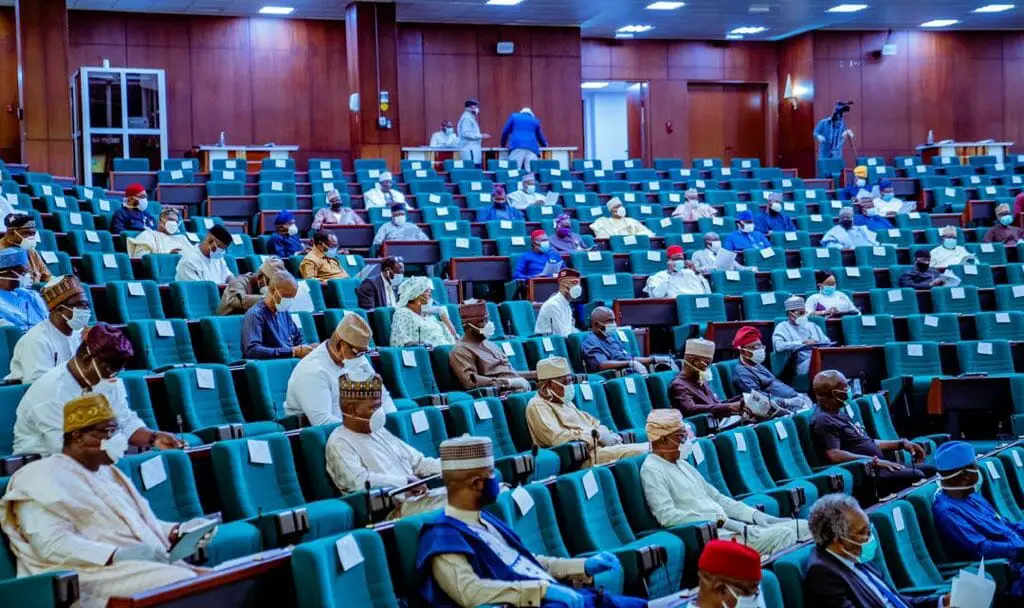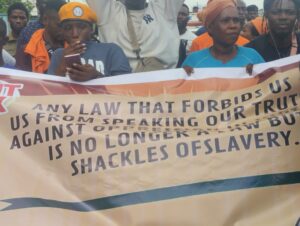The House of Representatives has asked the federal government to suspend implementation of the Samoa Agreement.
The House has also resolved to investigate the agreement signed by the federal government on June 28.
The green chamber passed the resolution following the adoption of a motion of urgent public importance sponsored by Sani Madaki, the minority whip, and 87 other lawmakers.
The agreement recently sparked controversy following reports that some lesbian, gay, bisexual, and transgender (LGBT) provisions found their way into the pact.
According to the European Council, the Samoa Agreement is the overarching framework for European Union (EU) relations with African, Caribbean, and Pacific countries.
The agreement serves as a new legal framework for EU relations with 79 countries, including African, Caribbean, and Pacific countries.
The agreement covers six priority areas, which are democracy and human rights; sustainable economic growth and development; climate change; human and social development; peace and security; and migration and mobility.
The agreement was officially signed on November 15, 2023, by the EU and its member states and Organisation of African, Caribbean, and Pacific States (OACPS) members in Samoa, a country in Oceania.
Nigeria did not sign the agreement initially, as the federal government said it was still studying the pact.
The new agreement replaces the Cotonou Agreement, which was signed in 2000.
The signing of the agreement has been dogged with claims that it seeks to compel developing nations to support LGBTQ agitations.
While there are no express provision mandating parties to the agreement to recognize rights of LGBTQ individuals, Daily Trust said its initial reporting where it claimed the agreement was pro-LGBTQ, was hinged on the expanded definition of gender in the Western world which accommodates transgender individuals.
Mohammed Idris, the minister of information and national orientation, said that the federal government ensured that the agreement did not contravene the 1999 Constitution (as amended) and other extant laws.
The government has also explained that the agreement is strictly for the economic development of the country — as against claims that it contains provisions for same-sex marriage.
But moving the motion in the House of Reps, Madaki said the agreement violates the nation’s law on LGTBQ and same-sex marriage.
Supporting the motion, Ghali Tijani from Kano, said the house should reject the Samoa Agreement in its “entirety”.
Bello Kumo, majority whip, said the federal government should rescind the signing of the agreement and tender an apology to Nigerians.
Kingsley Chinda, minority leader who is a co-sponsor of the motion, said the movers of the motion were not approving or condemning the agreement.
He asked his colleagues not to be “judgmental”, adding that the motion was calling for an investigation.
The lawmaker said the federal government should have carried lawmakers along before signing the agreement.
“The problem is lack of information. We were not carried along,” he said.
Julius Ihonvbere, majority leader, told his colleagues that “there is no portion in the agreement that supports LGBTQ”.
As Ihonvbere spoke, his colleagues interrupted, shouting “no” in unison.
Nigeria’s Same-Sex Marriage Prohibition Act (SSMPA) passed in 2014 prohibits LGBT rights and criminalises marriage between people of the same sex.
Nigeria’s legal position on same-sex marriage was what fuelled the uproar that followed its signing of the Samoa Agreement.








More Stories
Ribadu tells families of kidnapped victims not to pay any ransom
Ozigbo rejects Anambra APC guber primary, calls it a theft
Ndume tackles Tinubu over massive borrowings, lists ‘spurious’ items